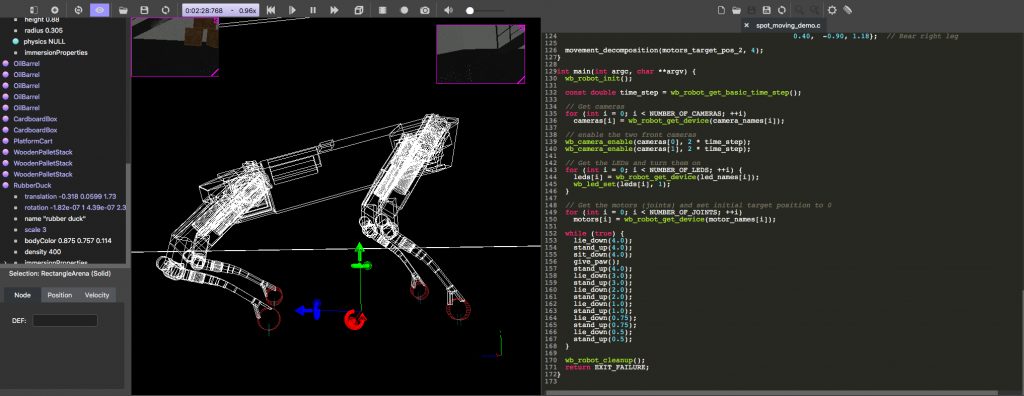
A project by Helen Pritchard and Cassandra Troyan
http://theantimenagerie.net/2021_In_the_mouth_of_a_polar_bear/
In this artistic research project Helen Pritchard and Cassandra Troyan engage with the production of transpecies animacy in the domains of edu-tainment, policing, and the military industrial complex. They interrogate the capacities of “legged robots designed to be used by the military, industrial, mining, energy, public safety and last-mile delivery” by Ghost Robotics, to animatronic spy animals made to look believable in natural history BBC programming, “Spy in the Wild”. All violent scenes dependent on visualizing technologies of feeling the world through aggressive sensing, scanning and surveillance.
Posing as either helpful or harmless machines, such as the Boston Dynamics dogs that can pick up your laundry, to more-than-animate soldier combatants dancing to tracks such a “Do You Love Me”. These robots are often posed as feeling the world, although not through embodiment, but with undead visual practices. In their physicality, they are a spy, spirit, or wraith –– witness to the world they sense and scan, yet beyond and removed from the consequences of its material realities. A viewer is constantly left with the place where a face should be looking back at you, or to look into the eyes of an animal expecting recognition only to see a camera lens or computational sensor returning your gaze.
Through the para-fictional scenarios explored in these viral video poems they investigate how transpecies storytelling and visual sensing technologies if not countered otherwise can be imploded as a mode for structuring the racist western imaginary of militaristic carceral imperialist fantasy. Using the visual and sonic principals of clickbait trauma-porn against itself, they reject a negative world-building project by instead approaching these techniques from a perspective of queer decolonial solidarity –– seeking to ultimately abolish the category of the species, along with the injurious technologies that could name, sense, and scan it as well.
Online presentation
The project was presented online by Helen Pritchard and Cassandra Troyan at 29 September 2021 and is available here.
Dr. Helen V. Pritchard is an artist and geographer whose work considers the impacts of computation on social and environmental justice. Their research addresses how digital design configures the possibilities for life—or who gets to have a life—in intimate and significant ways. As a practitioner they work together with companions to make propositions and designs for computing otherwise, developing methods to uphold a politics of queer survival and environmental practice.
They completed their PhD title “The Animal Hacker” in 2018 in the department of Geography at Queen Mary University of London. Helen is an Associate Professor of Queer Feminist Technoscience at i-DAT, Plymouth University and a research fellow at Goldsmiths University of London. They are the co-editor of “Data Browser 06: Executing Practices”, published by Open Humanities Press (2018) and and Science, Technology and Human Values: Sensors and Sensing Practices (2019). (www.helenpritchard.info/)
Cassandra Troyan is a writer, artist, and organizer whose work explores the intersections of gendered violence, radical histories of resistance, trauma, and speculative futures beyond capital. They are the author of several books and chapbooks of poetry, including, FREEDOM & PROSTITUTION (2020), A Theory in Tears (2016), KILL MANUAL (2014) and have presented, performed, or screened their multi-media work internationally. They live in southern Sweden and teach creative-critical writing practices as a Senior Lecturer in the Department of Design at Linnaeus University. (www.onemurderleadstoanother.com/)
Together Pritchard and Troyan are currently working on a research project across their institutions entitled, “Multispecies Methods for Solidarity Stories — Using Multispecies Storytelling for Sustainable Change byEngaging with Decolonial and Anti-Racist Strategies” which seeks to use interdisciplinary methods as part of a virtual lab, to allow writers, scholars, artists, designers, and theorists to engage and collectively build practices and ways of rethinking how we imagine our role as humans in connection with other species.
